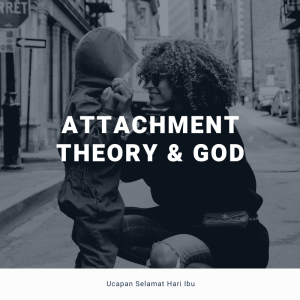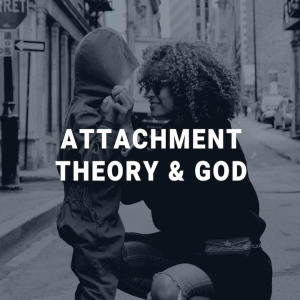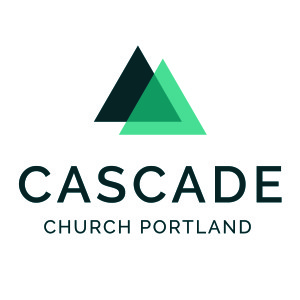Episodes

Tuesday Feb 11, 2020
Attachment Theory & God:: Evaluation & Communion
Tuesday Feb 11, 2020
Tuesday Feb 11, 2020
in the previous message Krispin Mayfield shared on attachment theory and phew(!!) it was good.
Getting curious about the tactics we employ to feel connected to the people closest to us and how they are doing the same thing can be a game changer. We can start making choices instead of just reacting when we tune in to the frequency of connecting to others.
And how this relates to the narratives we've been handed about connecting to God? Shoot dang.
In this message Krispin builds on previous themes of attachment strategies to talk about yield states, self-evaluation and what communion with God and others can look like.

Tuesday Feb 04, 2020
Attachment Theory & God:: Secure & Insecure Attachment
Tuesday Feb 04, 2020
Tuesday Feb 04, 2020
Krispin Mayfield (LPC) leads us on a journey through attachment theory, which is the science of emotional bonding, and how this interacts with our relationship with God. Enjoy!

Tuesday Feb 04, 2020
Cascade Story Sunday
Tuesday Feb 04, 2020
Tuesday Feb 04, 2020
For my first job at a church I worked at a nationally registered historical place.
I loved to joke that I was part-time youth director and part-time tour guide. People would stop by to check out a church building built in the 1860's and I would walk them through the building and share some of the stories that I had collected over the years.
Every building tells a story. It tells a story of when and how it was built. It tells a story about who labored to build it and who funded the building. It tells a story of design trends of the time and available resources for its construction.
We tell the stories of the past to remember where we came from and how it informs where we're heading. This Sunday we're going to be sharing the story of Cascade. The places we've come from and where we hope we'll be in the future. While we've held consistent values as a church, how we've demonstrated those values has evolved in really beautiful ways over the past 4 + years.
I hope you enjoy hearing from the folks on our board, from Sarah and me as co-pastors as we imagine what our future can be.

Wednesday Jan 22, 2020
Mark:: Women at the Table
Wednesday Jan 22, 2020
Wednesday Jan 22, 2020
Have you ever partaken in a meal that felt like holy space?
Great conversations, a feeling of warmth and the abundance of options. For some, maybe that’s a family dinner, others that’s at fun restaurant in Portland. After my hip surgery, I was given a Sunday off and was determined to participate in Portland’s brunch scene after working most Sundays of my adult life.
Let me tell you, it did not disappoint. We waited in a long line that day at Jam with a big group of friends, drinking unlimited coffee which was necessary for those of us figuring out pain killers for the first time to stay awake, and attempting to navigate with my crutches. I found it thrilling being apart of what most people have a choice to do on a Sunday and declared it one of my favorite Sundays ever. The excitement, laughter and fun if that day are forever my scene of what the last supper thought it would be until pivotal statements Jesus makes about a betrayal and his presence no longer being possible. I’ve always wondered if anyone started stress eating or asked for more wine in the tension of the moment. Did anyone cry? Did anyone suddenly not feel hungry at all or desire to take a nap in their grief and confusion?
It’s this moment that we are talking abut this week as we look at Mark 14 and the first supper. No, it’s not lent, and it does feel a bit like we just got to the birth story as Christmas lights are still on our house as I write this (thanks Oregon rain). But the last supper is the story that much of our church history creates denominational decisions over who can or cannot take communion, when it’s the appropriate time and what to even do with the bread once you have taken it. For some, communion is a routine, a ritual, even a holy experience. For others, it’s just something we do.

Wednesday Jan 15, 2020
Mark:: It's The End of the World As We Know It
Wednesday Jan 15, 2020
Wednesday Jan 15, 2020
Confession:: If I walk into a room where I just saw someone and they're no longer there, I will make a rapture joke. It's as involuntary as breathing or having my heart beat.
Growing up it wasn't uncommon to see "In Case of Rapture This Car Will be Unmanned" bumper stickers and to see copies of the Left Behind book series in homes. Images of piles of clothes on the ground from a rapture are locked in my brain from TV, movies or book illustrations (which begs some questions. Do we keep jewelry but not clothing? What about fillings? What's the policy on dental work staying or going?).
This obsession about the end of the world has created a complicated relationship with the Bible. We've been taught that when we read apocalyptic passages in the Bible (which is a literary form common to the ancient world) they are really clues for how the world is going to end. If we interpret the clues correctly than we will have a marked advantage over every other human being when the world really does come to the end. The Bible becomes less of a text about the heart of God and humanity, and more of a book of riddles to be solved (ie: Revelation)
In our series on Mark we reach chapter 13, which is very much apocalyptic literature. We're going to look at the cultural impact of interpreting these writings as a rapture event, walk through the history of rapture-esque readings of the Bible (hint:: not as ancient as you might expect) and what these passages could really be talking about.

Wednesday Jan 08, 2020

Tuesday Jan 07, 2020

Tuesday Dec 24, 2019

Tuesday Dec 17, 2019

Monday Dec 09, 2019
Mark:: It's Not The Miracles
Monday Dec 09, 2019
Monday Dec 09, 2019
Ever get a text from a friend about seeing a famous person or being at a place you share a mutual love for?
My favorite response is "Pics or it Didn't Happen".
I love the compounding aspect of disbelief. By asking for visual proof I'm agreeing that the thing they're seeing or doing is amazing. It feels playful and linked to my friend's experience.
The other side of that coin is that it can be construed as dismissive. That I fundamentally don't believe them and have placed a burden of proof on them to convince me that they're not a liar.
I wonder what the first century equivalent of this would have been? If you had been present to a miracle of Jesus would you have been met with a "Scribal Account or it Didn't Happen" from your friends? Would you have been believed or doubted and would it even matter?
One of the fallacies that influences us is the "happily ever after" nature of our modern storytelling. We can believe that we are one undeniably miraculous event away from being a true believer in God. I understand and validate the appeal of having a personal experience beyond just a learned experience, but what if you play that scenario out over decades?
Would you be compelled by a 70-80 year old's miraculous encounter in their 30's? I think it would make me sad for the 40-50 years of responding to a singular event. I'm more drawn to individuals with vibrant experiences that aren't just in the rearview, but are tied to this present moment. I think there's something that feels true about their engaged life here and now that isn't centered in the past, no matter how incredible it was.
If we can read the stories of Jesus while understanding the the truth of the narrative isn't centered on proving or disproving that these events, I believe it would better inform this present moment.

